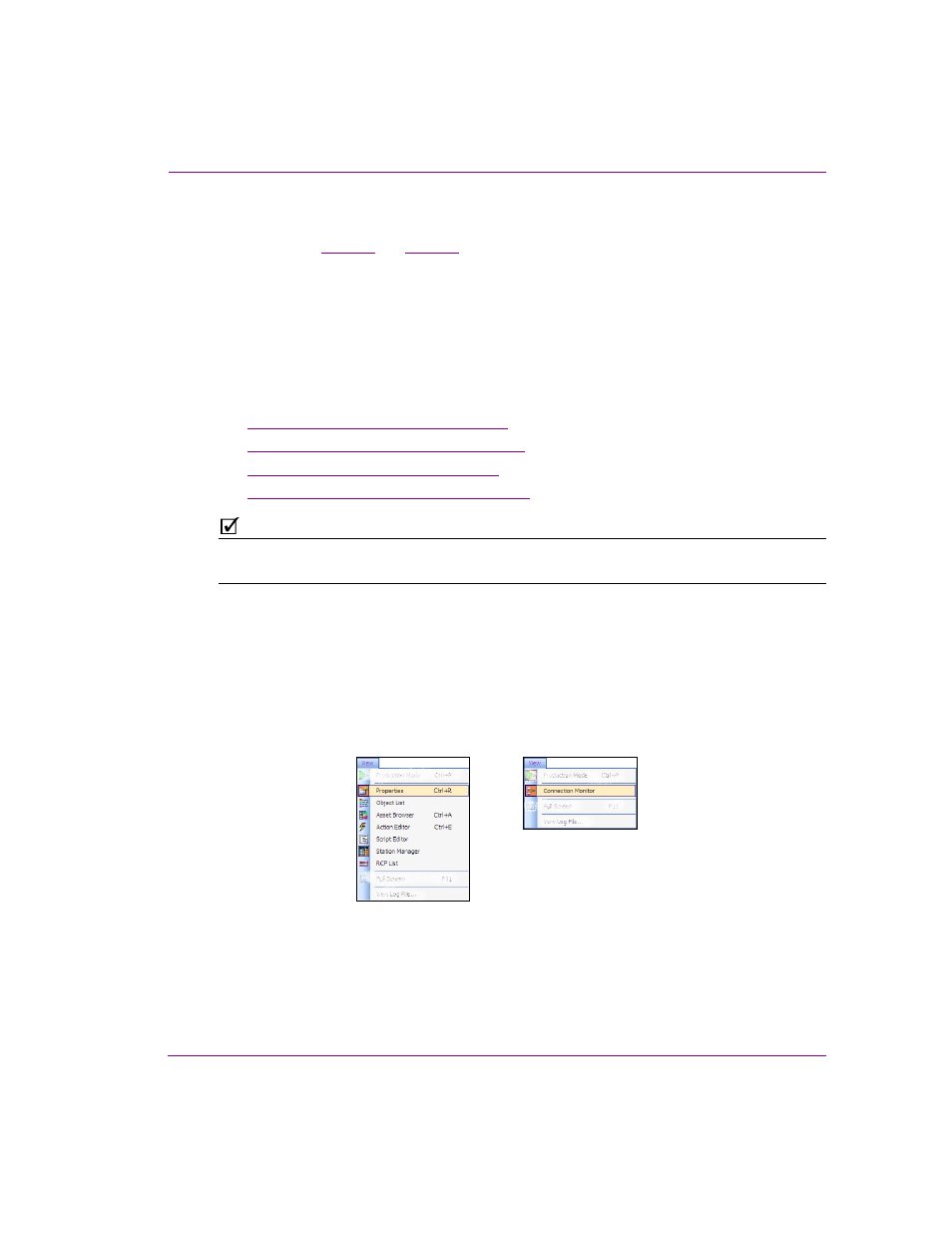Opening and positioning xpanel’s views, Opening and positioning xpanel’s views -11, The views can – Grass Valley Xpanel Vertigo Suite v.4.8 User Manual
Page 21: Opening and closing views

Xpanel User Manual
2-11
Getting started with Xpanel
Opening and positioning Xpanel’s Views
As described on
, Xpanel provides you with several views, which are
browsers and tools for building, configuring and monitoring the exact appearance and
behavior of the panel and its objects.
To avoid cluttering Xpanel’s interface and allow you to personalize the layout of your
workspace, the views are hidden by default. The following sections describe how once the
views are opened, they can be in the following states: floating, docked, hidden, pinned, or
tabbed.
For users, who are unfamiliar with the behaviors of docked and floating UI panels, the
following topics describe the basic tasks for controlling the layout of Xpanel views:
•
“Opening and closing views” on page 2-11
•
“Floating versus docked views” on page 2-12
•
“Positioning docked views” on page 2-12
•
“Auto-hidden and pinned views” on page 2-13
N
OTE
Views and their layouts persist after being switched between Xpanel’s two modes, as well
as across Xpanel sessions.
Opening and closing views
By default, the views are hidden from Xpanel’s main interface since they are used during
various stages panel building and usage.
•
To open a view in either Design or Production mode, simply select the V
IEW
menu and
then choose one of the views. Alternatively if the view has one, you can use the view’s
keyboard shortcut.
•
To close a view, either click the X button in the top-right corner of the view, or select
V
IEW
menu and the view’s name once again or use the view’s keyboard shortcut.
Design mode
Production mode
